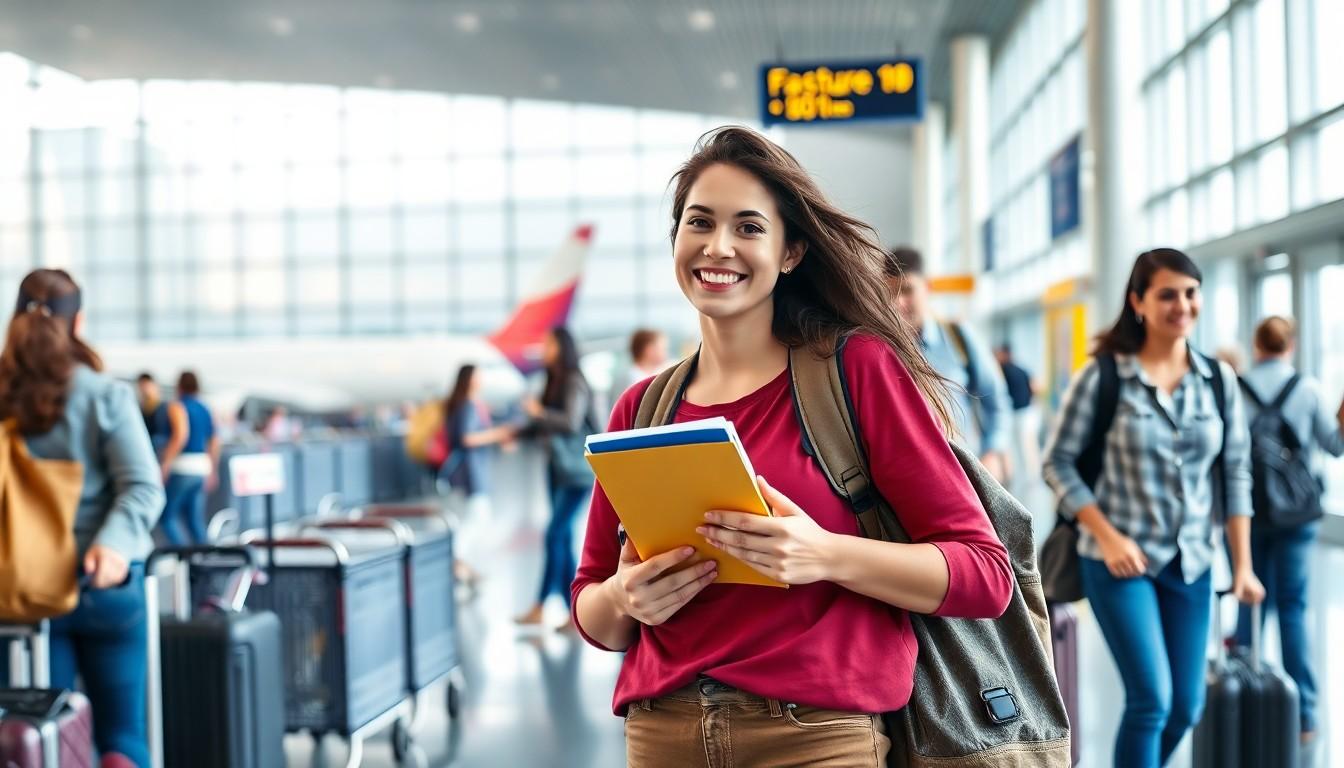Physical Address
304 North Cardinal St.
Dorchester Center, MA 02124

Travel and transportation are the dynamic duo of adventure and exploration. Without them, the only places people would visit are their own backyards and the occasional trip to the fridge. Whether it’s hopping on a plane to a tropical paradise or navigating the city streets on a trusty bicycle, the journey is just as thrilling as the destination.
Travel and transportation serve fundamental roles in shaping experiences and expanding horizons. They facilitate exploration beyond familiar environments, creating opportunities for adventure.
Travel and transportation connect people, cultures, and economies. These elements foster understanding and empathy among diverse populations. Efficient transport systems support trade, boosting local economies and generating jobs. Adventure enthusiasts benefit from travel options that encourage new experiences. Moreover, transportation methods reduce travel time, allowing individuals to maximize their adventures. Increased mobility also enhances educational opportunities, giving access to knowledge and cultural exchanges. The overall impact of these aspects is profound, influencing daily life on multiple levels.
Travel methods have transformed significantly over time. Early human journeys relied on walking or simple boats, driving exploration at a slow pace. The invention of the wheel led to the creation of carriages, revolutionizing land transport. With the introduction of steam engines in the 19th century, train travel emerged, offering speed and efficiency. Air travel further accelerated advancements, enabling long-distance journeys in mere hours. Presently, innovative technology continues to reshape travel, with electric vehicles and high-speed trains becoming mainstream. Future developments promise to enhance sustainability, ensuring that travel remains accessible and environmentally friendly.

Travel and transportation encompass various modes, each serving unique needs. Understanding these modes facilitates better travel planning and enhances experiences.
Land transportation includes vehicles like cars, buses, trains, and bicycles. Cars provide flexibility and comfort for personal trips. Buses offer economical options for public transit, serving urban and rural areas. Trains enable fast and reliable travel, connecting cities and regions efficiently. Bicycles promote sustainable travel while allowing exploration at a leisurely pace. Infrastructure advancements, such as dedicated bike lanes and electric vehicle charging stations, support safer and more convenient land travel.
Air transportation primarily involves airplanes, which allow for quick travel across long distances. Commercial airlines connect major cities and regions, offering a range of services, from economy to business class. Charter flights present alternatives for those seeking personalized travel experiences. Innovations in aviation tech enhance safety and efficiency, reducing flight times and fuel consumption. Airports invest in modern facilities, ensuring seamless travel with amenities to improve passenger comfort.
Sea transportation encompasses ferries, cargo ships, and cruise lines. Ferries provide vital connections for island communities and coastal cities. Cargo ships account for a significant portion of global trade, transporting goods efficiently between continents. Cruise lines offer leisure travel experiences that combine luxury and exploration. As sustainability becomes a priority, port authorities develop green practices, such as eco-friendly vessels and reduced emissions initiatives, enhancing the environmental responsibility of marine travel.
Technology significantly influences how people travel and transport goods. Innovations make journeys more efficient and enjoyable.
Electric vehicles transform personal transport, offering sustainable alternatives to traditional cars. High-speed trains shorten travel time while emphasizing comfort and efficiency. Drones and autonomous vehicles enter the landscape, unlocking new possibilities for delivery and urban mobility. Smart luggage simplifies airport navigation, ensuring travelers keep track of their belongings easily. Virtual reality provides immersive experiences, allowing people to explore destinations before making travel decisions. Each innovation enhances overall travel experiences, promoting convenience and accessibility.
Mobile apps revolutionize every aspect of travel planning and execution. They provide real-time updates on flight status, reservations, and weather conditions while enabling users to book accommodations and transportation seamlessly. Navigation apps help travelers discover routes and local attractions while optimizing trip itineraries. Ride-sharing apps connect passengers with drivers, increasing transportation options. Language translation apps bridge communication gaps, making interactions with locals smoother. Each app plays a vital role in simplifying travel, ensuring that users enjoy stress-free adventures.
Sustainable travel and transportation focus on reducing environmental impact while enhancing travel experiences. Various approaches support eco-friendly initiatives, contributing positively to the planet.
Electric vehicles and hybrid cars represent a significant shift toward greener travel methods. Public transit systems, including buses and trains, provide efficient alternatives that reduce overall emissions. Bicycles and walking not only aid personal fitness but also minimize carbon footprints. Carpooling services promote shared rides, lowering the number of vehicles on the road. Also, eco-conscious travel companies offer options like electric scooters and zero-emission ferries. Each option plays a role in creating a more sustainable transportation ecosystem.
Sustainable practices yield numerous advantages for travelers and communities alike. They help preserve natural resources by minimizing energy consumption and reducing waste. Enhanced air quality results from fewer emissions, promoting better health for populations in urban areas. Economies benefit too, with the rise of green jobs and industries that support sustainability. Tourists often seek eco-friendly travel experiences, boosting demand for environmentally responsible services. Placing emphasis on sustainability fosters a culture of conservation and encourages responsible tourism.
Travel and transportation are integral to expanding horizons and enriching experiences. They connect people and cultures while fostering understanding and empathy. As technology evolves the landscape of travel, sustainable practices ensure that future adventures remain accessible and environmentally friendly.
With various modes of transportation available, travelers can choose options that best suit their needs. Innovations like electric vehicles and smart apps enhance convenience and efficiency. Embracing sustainability in travel not only preserves the planet but also creates opportunities for responsible tourism.
Ultimately, the journey offers as much value as the destination itself. By prioritizing sustainability and embracing new technologies, travelers can enjoy meaningful adventures that benefit both themselves and the communities they explore.